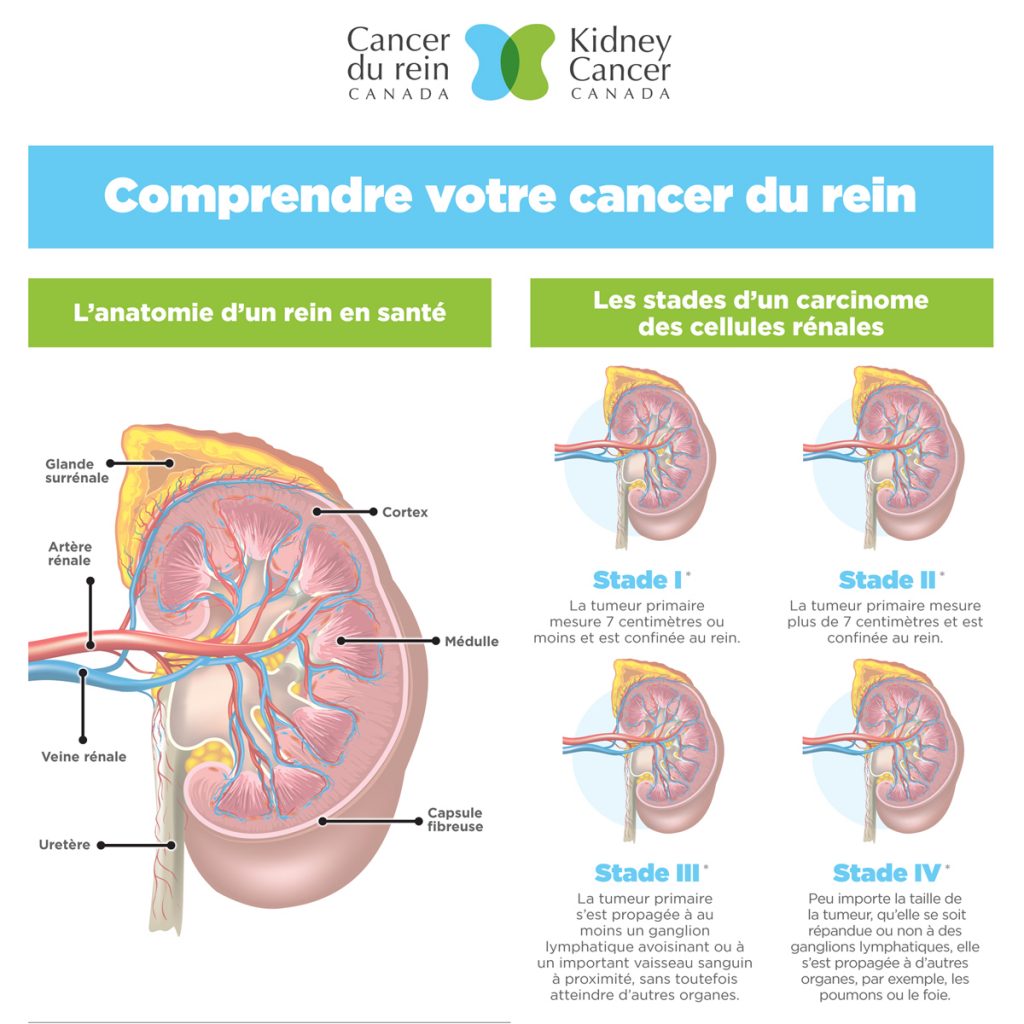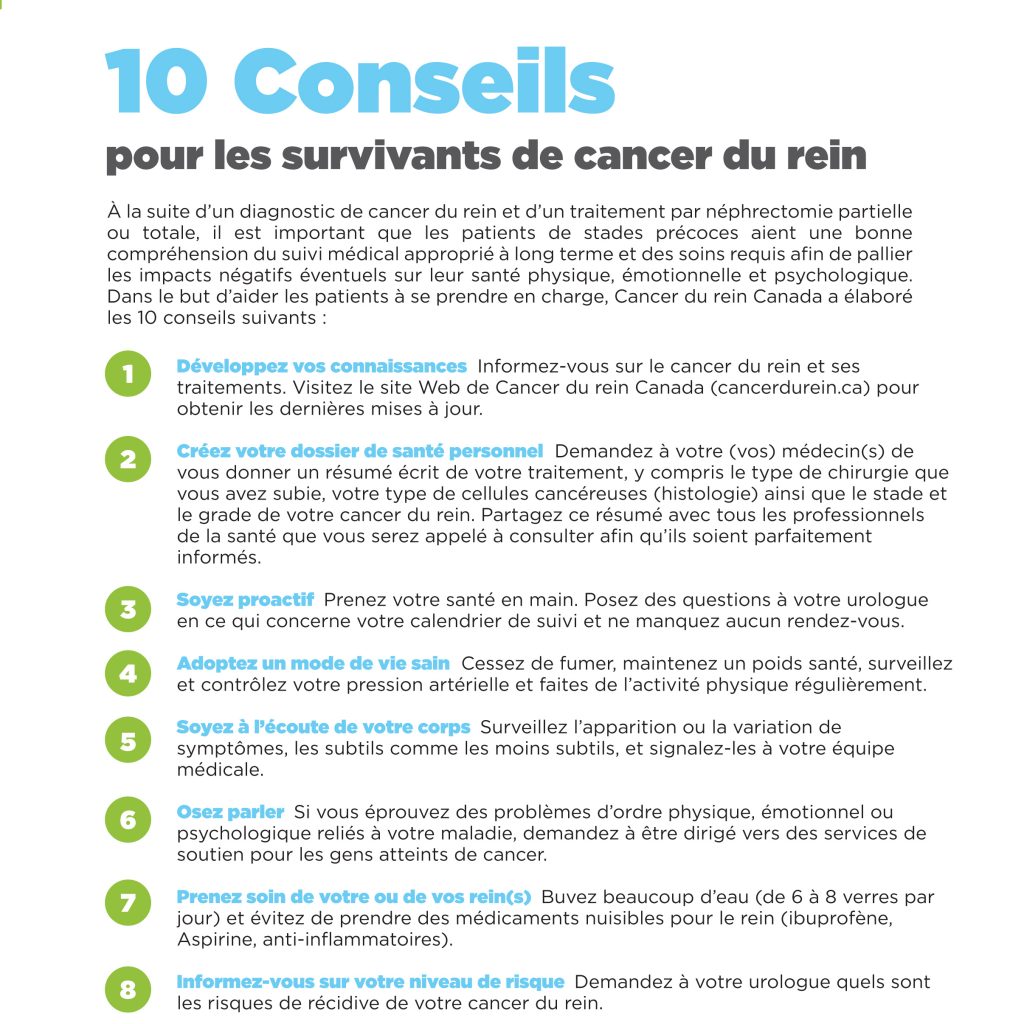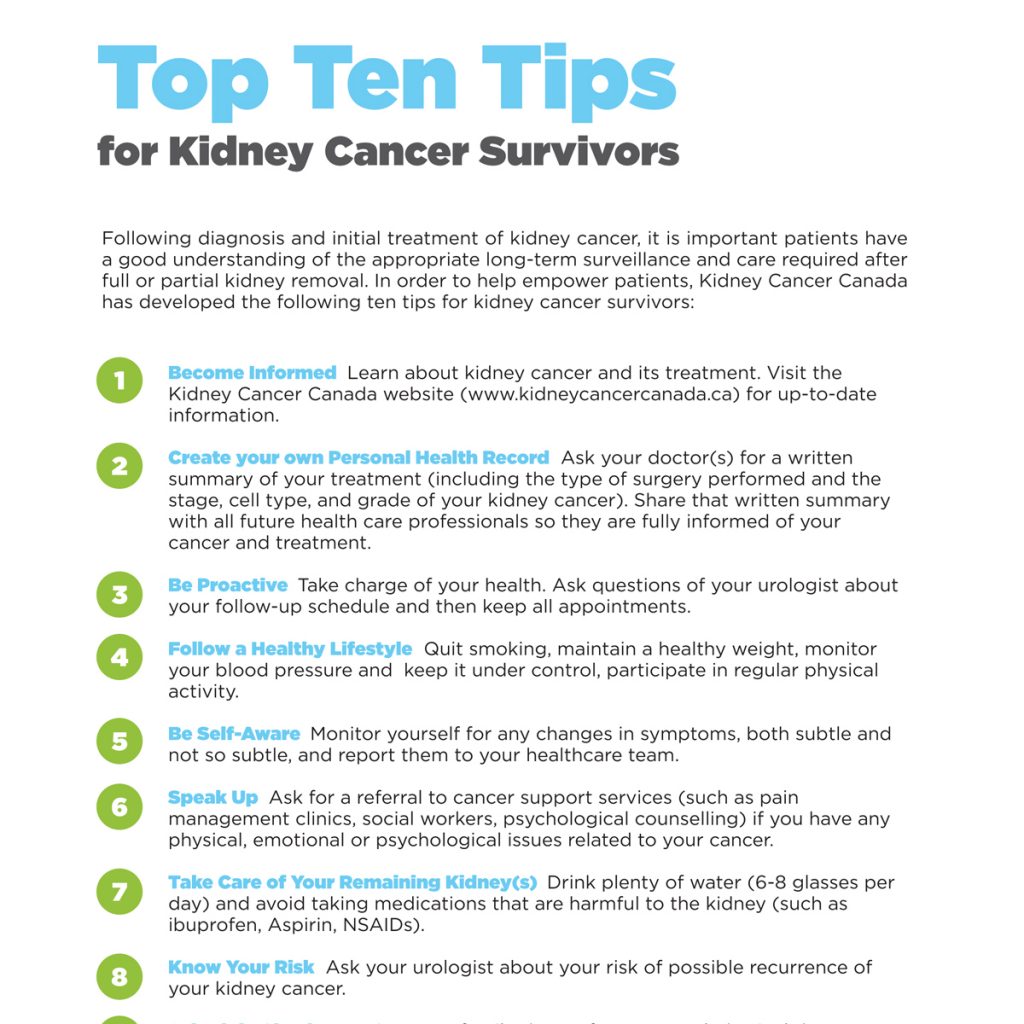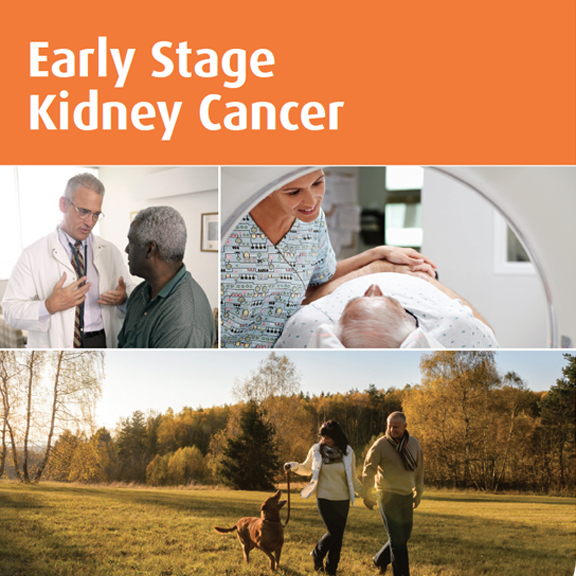
Summary of Kidney Cancer Highlights from ASCO GU 2024
Source: International Kidney Cancer Coalition (IKCC)
This year’s American Society of Clinical Oncology Genitourinary Cancers (ASCO GU) Symposium was held from 25-27 January 2024, in San Francisco, California, USA. The presentations are available to view on the ASCO website. Some affiliates of the International Kidney Cancer Coalition (IKCC) went to the meeting to keep up to date with the care and treatment of patients with kidney cancer. A brief ‘Take home messages’ section is followed by more in-depth review of selected abstracts.
Please note: The following summary was prepared for the benefit of patient advocates and patient organisations around the world who focus on kidney cancer. While this summary has been medically reviewed, the information contained herein is based upon public data shared at this meeting and is not intended to be exhaustive or act as medical advice. Patients should speak to their doctor about their own care and treatment.
Take home messages
- In Abstract LBA359, overall survival results from the clinical trial where pembrolizumab was given to patients to stop their cancer coming back after surgery (adjuvant treatment) were assessed. Adjuvant pembrolizumab improves overall survival in all patients with high-risk kidney cancer compared with placebo. Importance: These results further support the use of adjuvant pembrolizumab as a standard treatment for patients with kidney cancer at high risk of returning after surgery.
- In Abstract LBA358, the use of nivolumab as an adjuvant treatment to stop cancer coming back after surgery was assessed. After just over 2 years of follow-up, cancer-free survival was similar for the patients having the nivolumab infusions compared to those having placebo infusions. Importance: These study findings do not support the use of adjuvant nivolumab in patients with kidney cancer at high risk of returning after surgery.
- In Abstract LBA360, an injectable form of nivolumab was compared to nivolumab that is given by infusion into a vein (intravenous nivolumab). The injectable form of nivolumab was shown to be as good as intravenous nivolumab. Importance: The results from this study support the use of injectable nivolumab for the treatment of advanced kidney cancer.
- In Abstract 362, new information from a trial with nivolumab plus cabozantinib shows that after more than 4 years follow-up, patients continue to benefit from the treatment. Importance: For patients, the nivolumab plus cabozantinib combination has long lasting effects on survival. These results support nivolumab plus cabozantinib as a standard of care for previously untreated patients with advanced kidney cancer.
- In Abstract 364, eight years follow up results from the nivolumab plus ipilimumab study showed that patients with previously untreated advanced or metastatic kidney cancer had long lasting survival and response to treatment compared to sunitinib. Importance: This study shows that the survival benefits from treatment with the nivolumab plus ipilimumab combination are long lasting for patients with advanced or metastatic kidney cancer.
- In Abstract 386, real-world data from a UK-based study of the avelumab plus axitinib combination in patients with previously untreated advanced kidney cancer showed that the survival benefit and response to treatment at 3 years were as reported from clinical trials. No new side effects were reported during this study. Importance: This study shows that what is seen in clinical trials translates to the real-world use of this combination treatment.
- In Abstract 425, results showed that the use of cytoreductive nephrectomy followed by immunotherapy for the treatment of patients with metastatic kidney cancer increased overall survival compared to immunotherapy alone. However, the data used in this study came from past studies where the selection of these patients is biased in favour of the use of cytoreductive nephrectomy. Importance: This study does not change current clinical practice. More studies, such as randomised controlled clinical trials, are needed to determine the role of cytoreductive nephrectomy when used with immunotherapy.
Summaries
Adjuvant therapy for kidney cancer
Abstract LBA359
Overall survival time for kidney cancer patients treated with adjuvant pembrolizumab
Surgery (partial or radical nephrectomy) is the standard of care for large, high-risk kidney cancers that have not spread outside the kidney. The cancer can come back (recurrence) after nephrectomy in some patients. Adjuvant therapy is additional treatment that is taken after surgery to reduce the risk of the cancer from coming back.
Trials with vascular endothelial growth factor receptor (VEGFR) tyrosine kinase inhibitors (TKIs) that block the blood supply to the cancer have shown little benefit for patients for stopping the cancer from coming back after surgery.
However, immunotherapy with pembrolizumab has been approved in several countries as an adjuvant therapy to stop the cancer from coming back in other parts of the body.
In the KEYNOTE-564 clinical trial pembrolizumab (given by an infusion into a vein) has been shown to improve cancer-free survival after nephrectomy for kidney cancer patients at high-risk of their cancer returning compared to a dummy infusion (placebo). At ASCO GU, the overall survival data from the KEYNOTE-564 trial were presented.
994 patients were enrolled in the trial, of which nearly three quarters had intermediate-risk disease and one fifth had high-risk disease. The remaining patients (6%) had metastases that had been removed and they were cancer-free. Patients were followed-up for more than 4 and a half years (57 months).
The average overall survival time was not reached during the follow-up period for both groups of patients. However, more patients survived for 4 years or more when taking pembrolizumab (91.2%) compared to placebo (86%). For patients with kidney cancer that was at high risk of coming back after surgery, there was a 38% reduction in the risk of death with adjuvant pembrolizumab compared to placebo. The cancer-free survival benefit with pembrolizumab continued during the 4.5 years of follow-up: Adjuvant pembrolizumab improves cancer-free survival in all patients with high-risk kidney cancer compared with placebo.
These results further support the use of adjuvant pembrolizumab as a standard treatment for patients with kidney cancer at high-risk of returning after surgery.
However, patients should consider their situation carefully with their doctor and discuss the potential risks and benefits of adjuvant pembrolizumab. Without a test to predict which patients might benefit from treatment or who might suffer serious side effects, some patients may be given treatment they don’t need, and they may suffer from the potentially serious side effects of pembrolizumab unnecessarily. This needs careful consideration in discussion with your doctor.
Abstract LBA358
Adjuvant nivolumab for patients with kidney cancer at high risk of returning
In the CheckMate-914 study, the effectiveness and safety of nivolumab (an immunotherapy that stimulates the immune system to attack the cancer) was compared to a placebo infusion as an adjuvant therapy for kidney cancer that is at high risk of returning after surgery.
A total of 619 patients were randomly assigned to be treated with nivolumab infusions every 2 weeks for 6 months or placebo infusions every 2 weeks for 6 months. After just over 2 years of follow-up, cancer-free survival was similar for the patients having the nivolumab infusions compared to those having placebo infusions.
Nearly three-quarters of patients reported side effects to nivolumab, while just over half reported side effects to placebo.
These study findings do not support the use of adjuvant nivolumab in patients with kidney cancer at high risk of returning after surgery. This contrasts with the KEYNOTE-564 study. The differences could be that only 6 months of nivolumab was used (instead of 1 year of pembrolizumab) and there could be differences between immunotherapies.
A new way to give immunotherapy
Abstract LBA360
A new injectable form of nivolumab
The immunotherapy, nivolumab, improves outcomes for people with many different cancers. Nivolumab is given as an infusion in a vein in the arm every 2-4 weeks. Patients need to visit a hospital or clinic to have their infusion. This affects their quality of life as well as their finances, since patients may need to take time off work, travel long distances to regional cancer centres, organise childcare, or have a partner travel with them for treatment. A form of immunotherapy that can be injected by the patient at home will reduce these burdens on the patient and their family.
The CheckMate-67T study looks at a form of nivolumab that can be injected into the skin (subcutaneous nivolumab) by the patient and compares it to nivolumab that is given by infusion into a vein (intravenous nivolumab) in hospital.
All patients in the study had advanced kidney cancer that had already been treated with one or two anti-cancer medicines (but no prior immunotherapy). There were 495 patients in the study, half of whom were treated with subcutaneous nivolumab. The researchers tested the amounts of nivolumab in each patient’s blood throughout the study and looked at the effectiveness and safety of each form of nivolumab (subcutaneous compared to intravenous).
The subcutaneous nivolumab was as good as the intravenous nivolumab. The average injection time for the subcutaneous nivolumab was less than 5 minutes, whereas infusion of nivolumab takes 30 minutes. The side effects to subcutaneous nivolumab were the same as intravenous nivolumab. Less than 1 in 10 patients reported a side effect with the subcutaneous injection, most of which were mild and brief.
The results from this study support the use of subcutaneous nivolumab for the treatment of advanced kidney cancer. Subcutaneous nivolumab could help to improve the quality of life of kidney cancer patients by reducing the need for multiple hospital visits. Questions remain about the dose needed for kidney cancer. If this is a cost neutral option, it could offer a lot of convenience to patients and reduce hospital/clinic time.
Combination treatments continue to show promise as first treatments
Advanced kidney cancer is often treated with a combination of immunotherapy medicines (nivolumab and ipilimumab) or immunotherapy (avelumab, pembrolizumab or nivolumab) plus a VEGFR TKI tablet (axitinib, lenvatinib, or cabozantinib). In some countries, these combinations are now considered as standard treatment for previously untreated patients with advanced kidney cancer. Other combinations are in development.
At ASCO GU 2024 there were presentations of updated results and real-world data from some ongoing studies. But crucially, none of these studies can help us with the critical question; which combination of treatments is best for an individual patient with advanced kidney cancer?
Abstract 362
Four-year follow-up with cabozantinib plus nivolumab: does the survival benefit continue?
The phase 3 clinical trial, CheckMate-9ER, shows that cabozantinib (a VEGFR TKI tablet) used together with nivolumab (an immunotherapy infusion) is better than VEGFR TKI alone at shrinking the cancer, and improving survival in patients with advanced kidney cancer who had not previously taken any treatment.
Further follow up information was presented at the ASCO GU meeting. After more than four years, the combination of cabozantinib plus nivolumab continues to improve survival, control the cancer, and shrink the cancer on scans compared with sunitinib (a VEGFR TKI tablet).
The time to when the treatment stopped working and the cancer started growing again was nearly doubled with the combination treatment compared with sunitinib (16.4 months versus 8.4 months, respectively). Average overall survival time was nearly 4 years with the cabozantinib plus nivolumab combination, compared with 3 years for sunitinib. The number of patients who responded to treatment doubled with the combination (56%) compared with sunitinib (28%). Additionally, 13.6% of the patients on the combination treatment had a complete response to treatment and their cancer disappeared, compared with 4.6% for sunitinib. Also, the average duration of the response was longer for the patients on the combination (22 months), than for those on sunitinib (15.2 months).
Slightly more patients experience side-effects with the combination (97% versus 93%), and the side effects were more severe. This was like previous studies of this combination. However, only 7% of patients stopped combination treatment because of side effects.
After more than 4 years follow-up, patients continue to benefit from the cabozantinib plus nivolumab combination. Patients continue to respond to treatment, regardless of the severity of their disease. The cabozantinib plus nivolumab combination was also effective in patients who had spread of their cancer to areas of the body that are difficult to treat, such as bone, liver, and lung metastases. There were no new side effects reported. These results support nivolumab plus cabozantinib as a standard of care for previously untreated patients with advanced kidney cancer.
Does the survival benefit continue after eight years of follow-up with nivolumab plus ipilimumab?
The immunotherapy combination of nivolumab plus ipilimumab was the first combination therapy to be approved for previously untreated patients with advanced or metastatic kidney cancer. Further follow-up information from the CheckMate-214 study of the nivolumab plus ipilimumab combination was presented at the ASCO GU conference.
Patients were followed for at least 8 years after treatment with nivolumab plus ipilimumab or sunitinib. The combination of nivolumab plus ipilimumab continued to show long-term survival benefits in the CheckMate-214 study.
After 8 years, the risk of death was 28% lower in patients with previously untreated advanced or metastatic kidney cancer compared to sunitinib, regardless of the risk of their cancer (poor, intermediate or favourable risk).
Patients treated with the combination survived longer and responded to treatment for longer compared to patients treated with sunitinib.
For patients with intermediate- or poor-risk kidney cancer, the effectiveness of the combination was maintained for at least 8 years. The average overall survival time for these patients was nearly 4 years (46.7 months) compared to just over 2 years (26 months) for intermediate- and poor-risk patients treated with sunitinib.
The average length of the response was nearly 7 years (82.8 months) for intermediate- and poor-risk patients treated with nivolumab plus ipilimumab compared to just over a year and a half (19.8 months) with sunitinib. These are very impressive numbers and if a patient is a responder (39% are responders), the duration of response could be very long.
The average time to when treatment with nivolumab plus ipilimumab stopped working and the cancer started growing again was just over a year compared to 8.5 months with sunitinib. More than 4 in 10 patients responded to treatment with the combination, compared to nearly 3 in 10 patients for sunitinib. In addition, four times more patients treated with the combination had a complete response to treatment and their cancer disappeared compared with sunitinib (12% vs. 3%).
These survival benefits were also seen for all patients in the study, including patients with favourable-risk cancer.
“It is incredible to see that after eight years in the CheckMate -214 trial, which represents the longest reported follow up of any Phase 3 trial of a checkpoint inhibitor combination therapy in advanced renal cell carcinoma, the combination of nivolumab and ipilimumab continues to provide superior survival and durable responses for these patients,” said Professor Nizar Tannir from The University of Texas, MD Anderson Cancer Center. “Not only are we seeing sustained benefits over sunitinib in the primary endpoint population of intermediate- and poor-risk patients, but also within the key secondary endpoint intent-to-treat population, which goes to show that this dual immunotherapy combination can potentially help patients achieve positive long-term outcomes, regardless of [the risk of the cancer].”
Side effects to the nivolumab plus ipilimumab combination were manageable and could be treated, and no new side effects were reported.
The nivolumab plus ipilimumab combination resulted in long-term survival and response to treatment compared to sunitinib in all patients with untreated advanced or metastatic kidney cancer. Complete response rates were higher, and the average length of response to treatment was longer with the combination compared to sunitinib, regardless of the risk of their cancer. Side effects could be treated, and no new side effects were reported.
The use of avelumab plus axitinib for the treatment of advanced kidney cancer in the real world
The combination of avelumab plus axitinib has been shown to be better than sunitinib at improving survival and response to treatment in patients with previously untreated advanced kidney cancer. This study reports real-world data up to 3 years after the start of treatment with avelumab plus axitinib in patients with advanced kidney cancer in the UK.
This study was an observational study. Data were collected from the medical records of adult patients diagnosed with advanced kidney cancer and who had started treatment with avelumab plus axitinib. Patients were followed for an average of 3 years.
There were 130 patients in the study. Six in 10 patients had intermediate or poor risk disease, the rest had favourable risk disease. Most patients had clear cell kidney cancer (9 in 10 patients), two thirds had had surgery, and 8 in 10 patients had spread of their cancer to other parts of the body (metastases).
Eight in 10 patients survived for at least a year, two thirds survived at least 2 years, and just over half of the patients survived at least 3 years. The average time to when the treatment stopped working and the cancer started growing again (progression-free survival) was a little over a year (13.5 months). Six in 10 patients were responding to treatment after 3 years follow-up. For 6 patients their cancer disappeared, and they had a complete response to treatment. For more than half of the patients (57%), their cancer got smaller and for a third of patients their cancer remained stable at 3 years. The average duration of response to the treatment was just over a year (14.9 months). Patients stayed on the avelumab plus axitinib combination treatment for an average of just over a year (14.7 months).
Two thirds of patients had side effects to treatment, most of which were not serious. The most common side effects were diarrhoea, extreme tiredness, and a sore mouth. Only 9 patients stopped treatment with avelumab and/or axitinib because of side effects.
In this UK-based real-world study of the avelumab plus axitinib combination in patients with previously untreated advanced kidney cancer, the time to when the treatment stopped working and the cancer started growing again (progression-free survival) and response to treatment at 3 years were as reported from clinical trials. No new side effects were reported during this study.
Surgery
Abstract 425
The use of surgery followed by immunotherapy for the treatment of kidney cancer that has spread
Cytoreductive surgery is the surgical removal of all visible cancerous tumours to reduce the amount of cancer in the body. In many countries, the use of cytoreductive surgery for kidney cancer (cytoreductive nephrectomy) together with a targeted therapy, e.g. a tyrosine kinase inhibitor (TKI) tablet is the standard treatment for kidney cancer that has spread (metastatic kidney cancer). However, the role of cytoreductive nephrectomy together with immunotherapy infusions (medicines that stimulate the immune system to attack cancer cells) is not clear.
This study looked at the results from eight clinical studies that had already been completed and compared the use of cytoreductive nephrectomy followed by immunotherapy with immunotherapy alone in patients with metastatic kidney cancer.
A total of 2,319 patients were included in the study from the eight clinical studies. Of these, 1,264 had cytoreductive nephrectomy plus immunotherapy, and 1,055 had immunotherapy alone.
The use of cytoreductive nephrectomy plus immunotherapy increased overall survival by about 7 months compared to immunotherapy alone.
The use of cytoreductive nephrectomy followed by immunotherapy for the treatment of patients with metastatic kidney cancer increased overall survival compared to immunotherapy alone. However, the selection of the patients in this study may be in favour of the use of cytoreductive nephrectomy. More studies, such as randomised controlled clinical trials, are needed to determine the role of cytoreductive nephrectomy when used with immunotherapy. For now, the use of cytoreductive nephrectomy is a complex decision and is less commonly done than previously, especially if there is an urgent need to start drug treatment.
Acknowledgements:
Editor: Dr Martin Zarba (AR)
Co-editor: Dr Daniel Heng (CA)
Medical Reviewers: Professor Axel Bex (NL/UK) and Dr Eric Jonasch (USA)
Medical Writer: Dr Sharon Deveson Kell (UK)


























































